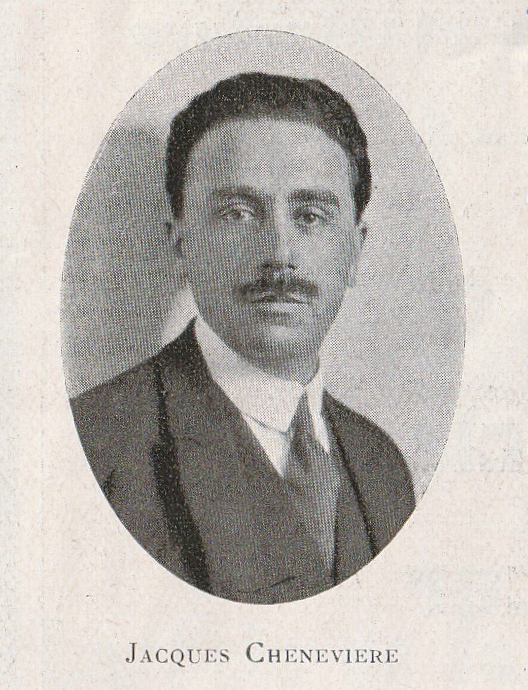Jacques Chenevière
 Jacques-Louis-Edmond Chenevière (17 April 1886, Paris – 22 April 1976, Bellevue GE, Switzerland), commonly known as Jacques Chenevière, was a Swiss poet, librettist and novelist from a Patrician family in Geneva. For more than sixty years, he also served as a humanitarian official in top-positions of management and organisation at the International Committee of the Red Cross (ICRC).
Jacques-Louis-Edmond Chenevière (17 April 1886, Paris – 22 April 1976, Bellevue GE, Switzerland), commonly known as Jacques Chenevière, was a Swiss poet, librettist and novelist from a Patrician family in Geneva. For more than sixty years, he also served as a humanitarian official in top-positions of management and organisation at the International Committee of the Red Cross (ICRC).The award-winning author, whose father Adolphe Chenevière (1855–1917) was a critically acclaimed man of letters as well, wrote in French and became most famous for his works of psychological fiction. The external contexts of the plots were mostly set in Paris, Geneva or Provence. His ''Œuvre'' comprises ten novels, two books of poems as well as several essays, lyrics and novellas. He was widely considered to be one of the most important representatives of literature from Romandy in the 20th century.
Shortly after the beginning of the First World War, Chenevière took up a leading role in the International Prisoners-of-War Agency (IPWA). In 1919 he was elected as a member of the ICRC and in 1923 became its director-general. During the Second World War he was appointed the director of the Central Information Agency on Prisoners-of-War as well as of the Central Bureau of the ICRC. In 1945, he rose to be its vice-president for the first time. Within the ICRC leadership he belonged to the legalistic group which prevented a public denounciation of the Nazi-terror regime. In recent years, the ICRC has recognised that its silence about the holocaust was «the greatest failure» in its history.
Chenevière remained a regular member of the ICRC for half a century, which made him the one with the second-longest term of office in the history of the organisation. Upon his retirement in 1969 he was made an honorary member. A decade earlier he had been appointed as the first ever honorary vice-president of the ICRC. Provided by Wikipedia
